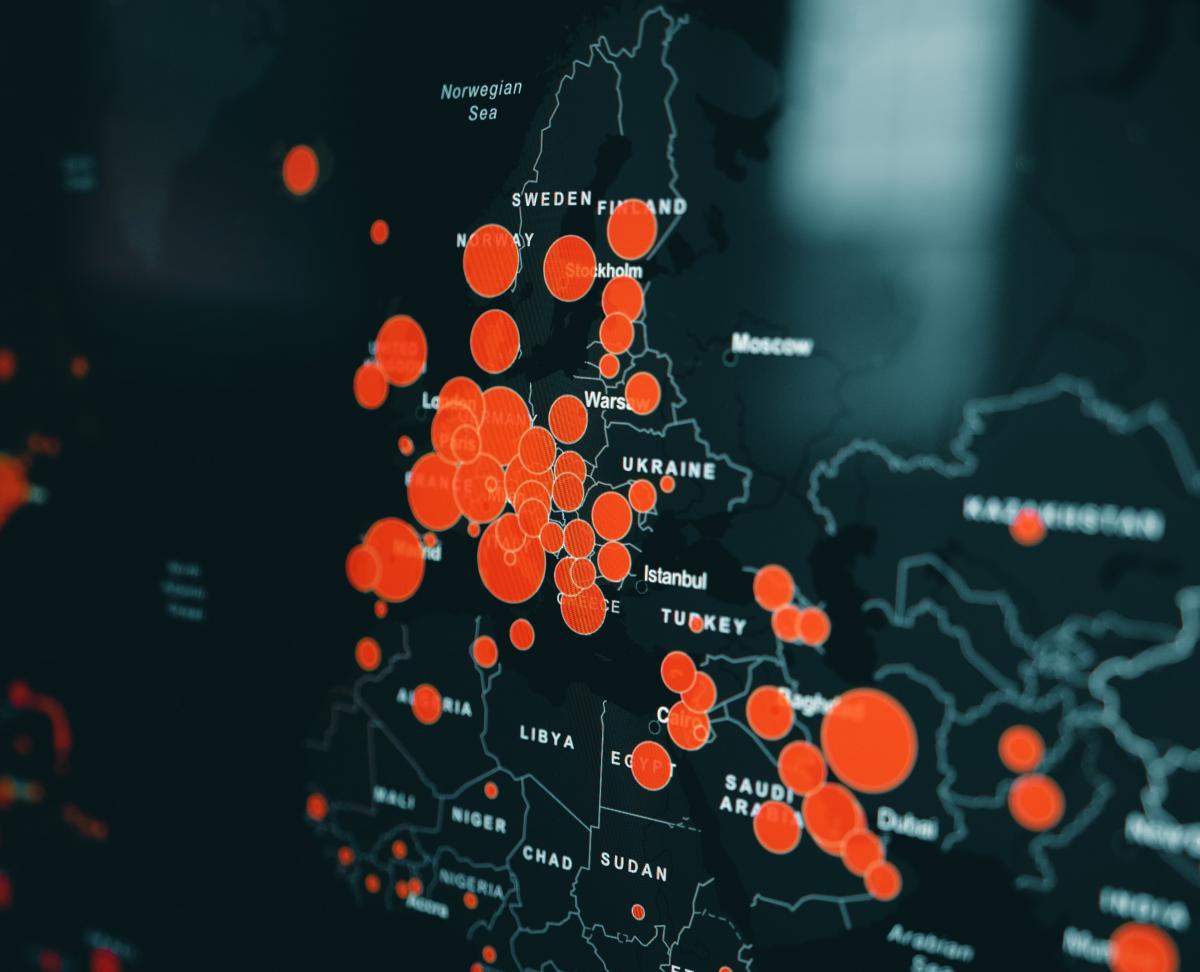Employees in this field need two different sets of skills: technical prowess and theoretical expertise. Therefore, APAN is multi-disciplinary at its heart, combining forces from two highly respected departments of study at UMD, GVPT, and JPSM.
Developing and working with social and behavioral data presents unique challenges in measurement design, data collection, ethics and governance, communication, data management, modeling, and analysis. Therefore, successful analysts must have the technical background to work with data sets unimaginable to previous generations. They must also have a rich political science background to meaningfully apply these analytical skills to important policy questions and issues.

Why UMD?
APAN is a pioneering effort. There are only a handful of programs that train graduate students to work at the intersection of political science and data science. Government & Politics (GVPT) and the Joint Program in Survey Methodology (JPSM) are particularly well qualified to offer this graduate program in political analytics.
GVPT has developed an exciting and innovative undergraduate program centered around the quantitative analysis of politics. The department offers a variety of courses for students who desire more rigorous training in data analytics within the major. A recent external review of the department was particularly impressed that these courses both teach and require programming knowledge in R, a skill that faculty and students recognize as a significant advantage in the job market.
JPSM is the nation’s oldest and largest program, focused initially on offering graduate training in the principles and practices of survey research. Over the years, the scope of JPSM has dramatically increased to include administrative data and other digital traces. Studying errors in collecting such data, creating measurements from those data, and developing methods to analyze data by themselves, in conjunction with survey data, is now an added focus. This also opens the door to further collaboration with data curation, management, and access experts. JPSM is also varied in its substantive content of data and faculty expertise, exhibited, for instance, by a group of core faculty with joint teaching positions in departments such as Sociology, Economics, Mathematics, and Biostatistics.
The APAN MS at Maryland has several defining features...
1. Flexible Learning with Renown Educational Partners
Course instruction is provided both in-person and semi-virtually (JPSM, a collaborative partner in the APAN program, conducts regular virtual conference classes with its partners at the University of Michigan and Westat). In-person courses are taught on UMD’s campus in College Park.
The program is also created with working students in mind. While it may not always be possible, we try to schedule evening courses and encourage our faculty to provide some asynchronous elements to accommodate our working professionals seeking to advance their career opportunities. APAN is a per-credit-hour program, meaning students can complete it at their own pace once formally accepted to The Graduate School. For those standalone degree students most eager to complete, the program can be completed in as few as 3 semesters; those who prefer a lighter course load can complete 2 courses per semester and complete the degree in 3 years. The 4+1 track also has some flexibility in course load after completing the BA.

2. Theory AND Technique
At APAN, we know from experience that theory OR technique alone will not cut it – a proper understanding of political behavior and modeling necessitates a firm grounding in BOTH. Knowing how to code a regression in statistical software is not helpful if you cannot map the results onto the world around you. Similarly, it is not beneficial to generate dozens of exciting and actionable research questions that you lack the skills to execute.
This is where APAN comes in – to provide students with a confident command of how data further illuminate political science and how political science further illuminates data.

3. Practical Expertise in a Competitive Industry
Not surprisingly, the Washington DC area is extremely attractive to people interested in political or public policy careers. Their plans might include, for example, positions on Capitol Hill or at the World Bank or International Monetary Fund, a research organization such as the Brookings Institution, a political campaign, or a government agency.
Many, however, will find it difficult to stand out in a crowded job market – each year, U.S. colleges and universities grant degrees to more than 160,000 undergraduates who majored in social science or history. The APAN program gives students valuable skills that provide a significant edge in the competitive D.C. market.
APAN strives to recruit the most knowledgeable experts to fulfill our faculty needs. We also host workshops, webinars, and similar events designed to introduce students to experts applying political data analysis skills in the real world.
UMD’s proximity to the D.C. market is also undeniably advantageous to our students, who can pursue professional pursuits in tandem with their advanced degree. Career-oriented events also provide students with repeated opportunities to facilitate their own relationships with data science professionals and organizations during their education, magnifying their potential for immediate success in the industry.
APAN students also benefit tremendously from close access to research resources on campus, such as the annual Critical Issues Poll, the Interdisciplinary Lab of Computational Social Science, the GIS and Spatial Data Center Lab (which includes remote access to statistical software), and the GVPT Experimental Lab. These resources and faculty pursuits provide dozens of students each year the opportunity to field interesting survey questions to a national sample and/or employ their own experimental research design on human subjects. The proximity of APAN students to these experiential opportunities substantially adds to their confidence and knowledge of political data analysis.

4. Professional Development and Support
We know that being admitted to graduate school is only the first step. We are committed to providing all our students with whatever and as much support as they need while navigating this program. We are here not only to help you master the content of your coursework but also to nurture and refine your own professional and research aims. You will receive one-on-one coaching and mentoring throughout your time at the program and opportunities to attend workshops on research and careers in political data analytics. We also want to ensure a welcoming and reassuring environment where students feel comfortable learning while they can still make mistakes with limited consequences to become better scientists.
APAN’s Program Director and faculty members are always available to mentor students, work outside the classroom one-on-one, or connect students with others sharing similar experiences or interests. We strongly emphasize professional development and invite our students to attend regular workshops focused on creating strong resumes and cover letters, interview skills, and presentation and speaking skills. The GVPT department also routinely hosts workshops focused on academic research in progress in several areas (Political Methodology, American Politics, Comparative Politics, and International Relations) from scholars at UMD and beyond that APAN students are encouraged to attend.




